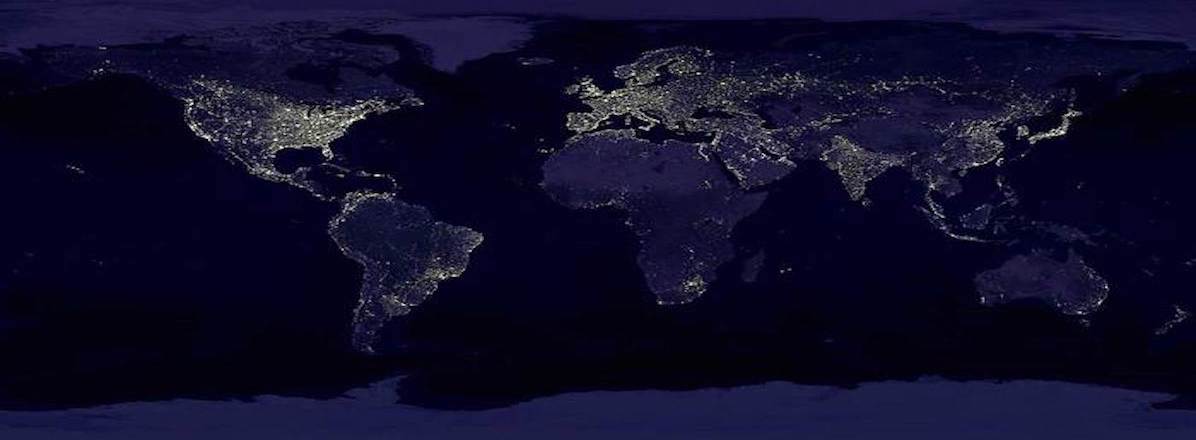A nation must think before it acts.
COVID-19: A Ripe Opportunity for the Kremlin’s Calamitous Messaging
May 27, 2020
Post by Rachel Chernaskey
Russian state-sponsored media outlets have a history of pushing calamitous messaging, publishing stories that seek to instill fear about the prospect of global catastrophe. Often featuring click-bait in their headlines, these stories attempt to elicit strong emotional responses and draw readers further into coverage. A few examples from RT and Sputnik News include: A December 2016 Sputnik News story titled “Not So Happy New Year: The Conflicts That Could Lead to WWIII in 2017,” which discussed a report outlining the world’s most pressing conflicts; a 2018 RT op-ed titled “Asteroids, war, economic collapse! Is the world heading for imminent disaster?” that wondered about the possibilities of financial collapse and the start of WWIII that year; and a 2019 RT story titled “‘A global catastrophe’: Radiation activist warns that 5G networks are ‘massive health experiment’,” which highlighted claims of 5G’s alleged harmful effects. (Though 5G hasn’t been shown to be more dangerous than previous technology, conspiracy theories about its dangers have spread widely in 2020 amid the COVID-19 pandemic.)
The Kremlin’s calamitous messaging is prone to particular themes: the failure of global financial markets, the breakdown of social cohesion, the outbreak of nuclear war and other events, like pandemics, that may trigger global catastrophe. Thus, the COVID-19 pandemic and the subsequent “infodemic” represents a ripe opportunity for Russian state-sponsored media that aims to influence audiences abroad. A population dealing with great uncertainty about the future (both regarding the virus’s spread and the economy) and a deluge of misinformation about COVID-19 might be more susceptible to stories that seek to feed those concerns and exploit them.
Of the more than 7,900 RT and Sputnik News stories published from January 1, 2019 to April 21, 2020, and catalogued by the FIE 2020 Project, some of the most popular stories feature calamitous messaging and sensationalist, fear-inducing headlines. One March 28 RT article, “Run for the hills! Pentagon sends teams into MOUNTAIN BUNKERS as pandemic preparations go into full swing,” covered U.S. military officials operating out of underground command posts during the COVID-19 outbreak, noting that these posts are “integral to the US government’s plan to survive a doomsday scenario.” As of May 27, 2020, the story received more than 12,100 public shares, 13,600 comments and 24,500 reactions on Facebook. An article published on April 11 titled “Unprecedented: US becomes 1st country to report 2,000+ Covid-19 deaths in SINGLE DAY, breaking global record,” highlighting the severity of the outbreak in the U.S., received more than 4,500 public Facebook shares, 7,700 comments and 17,900 reactions as of May 27.
A recent RT op-ed titled “Decadent like the late Roman Empire, the West is committing suicide through its irrational response to Covid-19” writes that while “many think Covid-19 is some kind of alien invasion that spells the end of the world,” the real threat to society is the adoption of Western values, citing the West’s “suicidal shutting down of their economies to try to halt a virus that predominantly causes old and sick people to die just a few weeks or months before they would have anyway.” These countries, the article states, may be “be so weakened they will be invaded by others and be erased from the world map.” As of May 27, the article had more than 2,700 public shares, 3,600 comments and 5,800 reactions on Facebook.
Other stories with smaller spread online espouse the same notion of imminent catastrophe through the lens of COVID-19 coverage. A story titled “George Galloway: Capitalism is one virus away from existential disaster, and only its victims’ money can save it” (486 public Facebook shares) bemoans the failures of the capitalist system and suggests its coming demise. Another, “Is it Brave New World or 1984? Here are a few dystopias we ALREADY live in” (282 public Facebook shares), starts off by speculating on life after the pandemic: “economic collapse, martial law.” And RT’s “Will they bomb the pandemic to death? Even with the Covid-19 crisis, the US war machine ALWAYS wants more money” (225 public Facebook shares) criticizes the U.S. for seeking defense funding amid the global outbreak. “Covid-19 or not, nukes are ready,” the article notes. Coverage of COVID-19’s impact on the economy highlights instability and decline, while other stories promote narratives of social unrest and mass surveillance.
In previous years, much of the calamitous messaging from Russian outlets hasn’t seen significant spread online. However, as COVID-19 coverage continues to dominate the media landscape and readers try to make sense of the pandemic, Russian state-sponsored media may see greater success in exploiting fear and gaining followers along the way. In the lead-up to the 2020 U.S. presidential election—where COVID-19 will surely feature prominently in campaigns and debates—reception to Kremlin calamitous messaging and its narratives might pose a greater threat than it had before.




